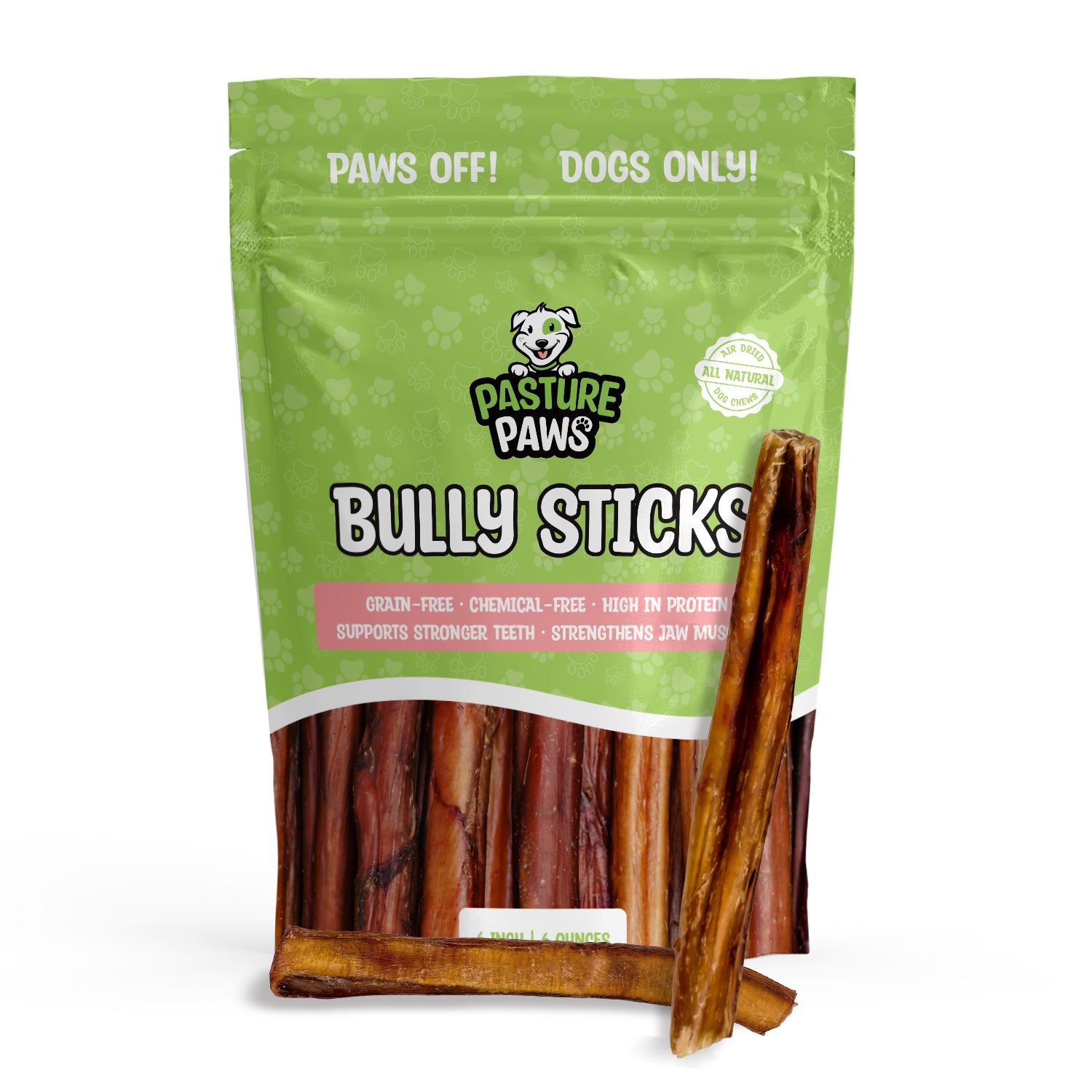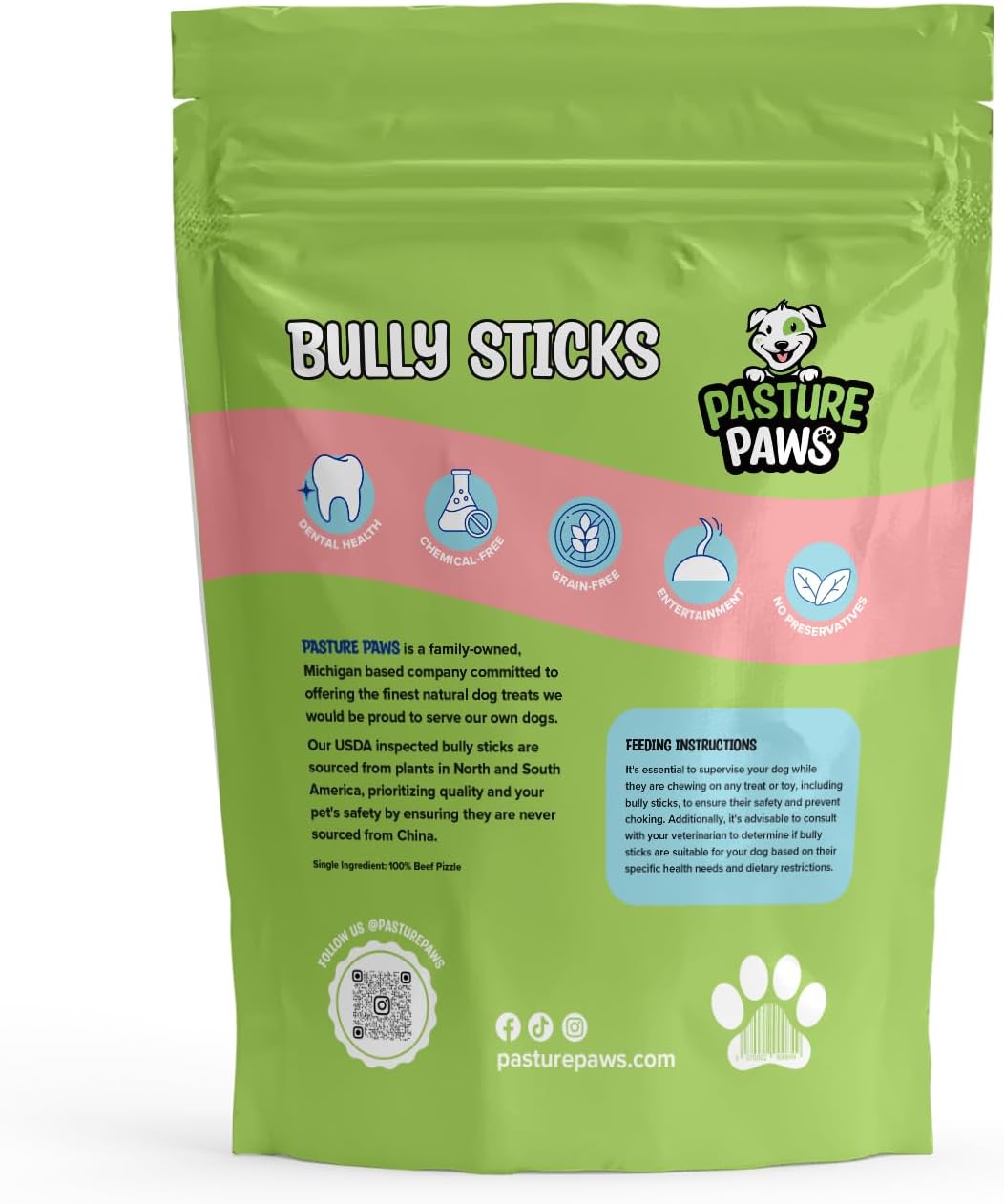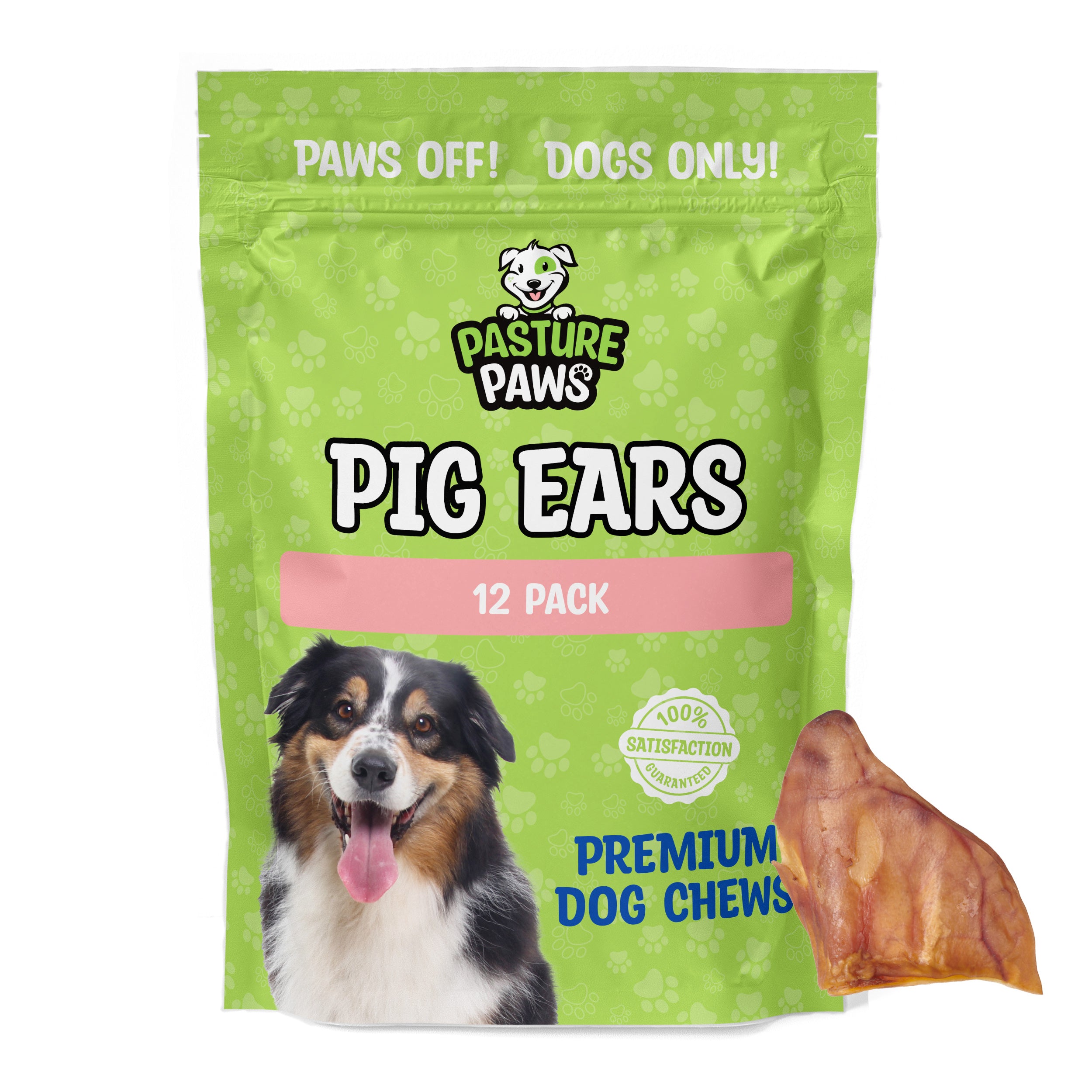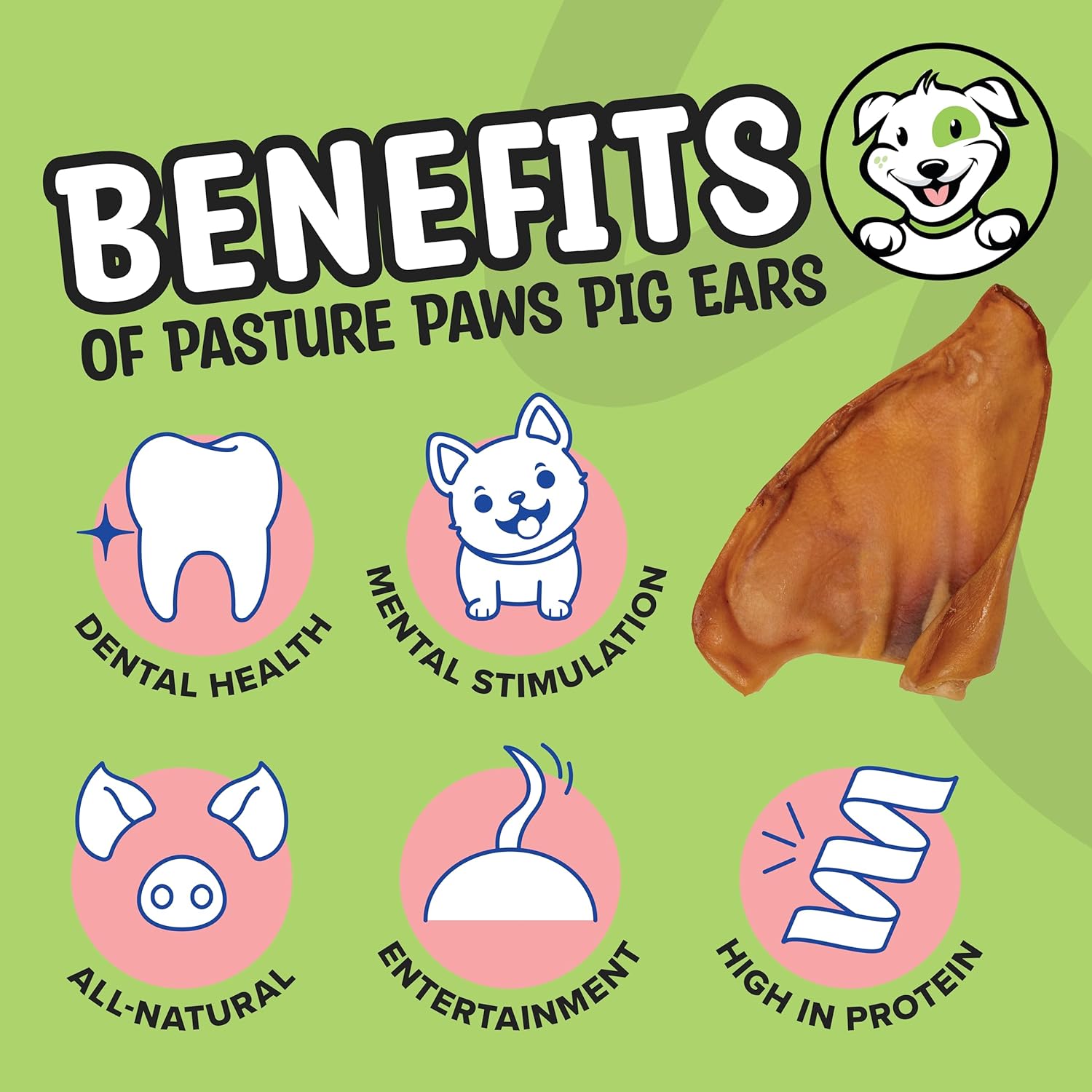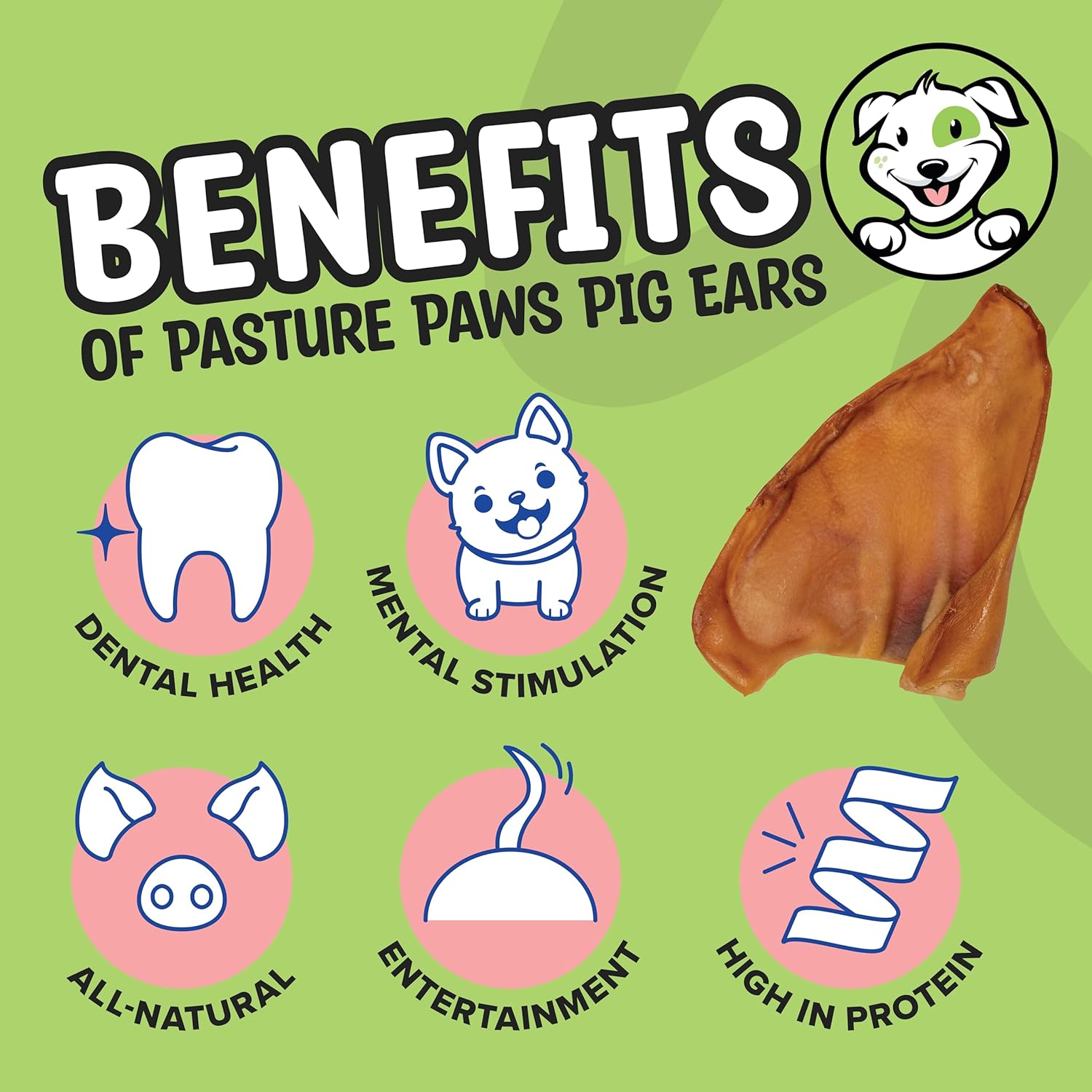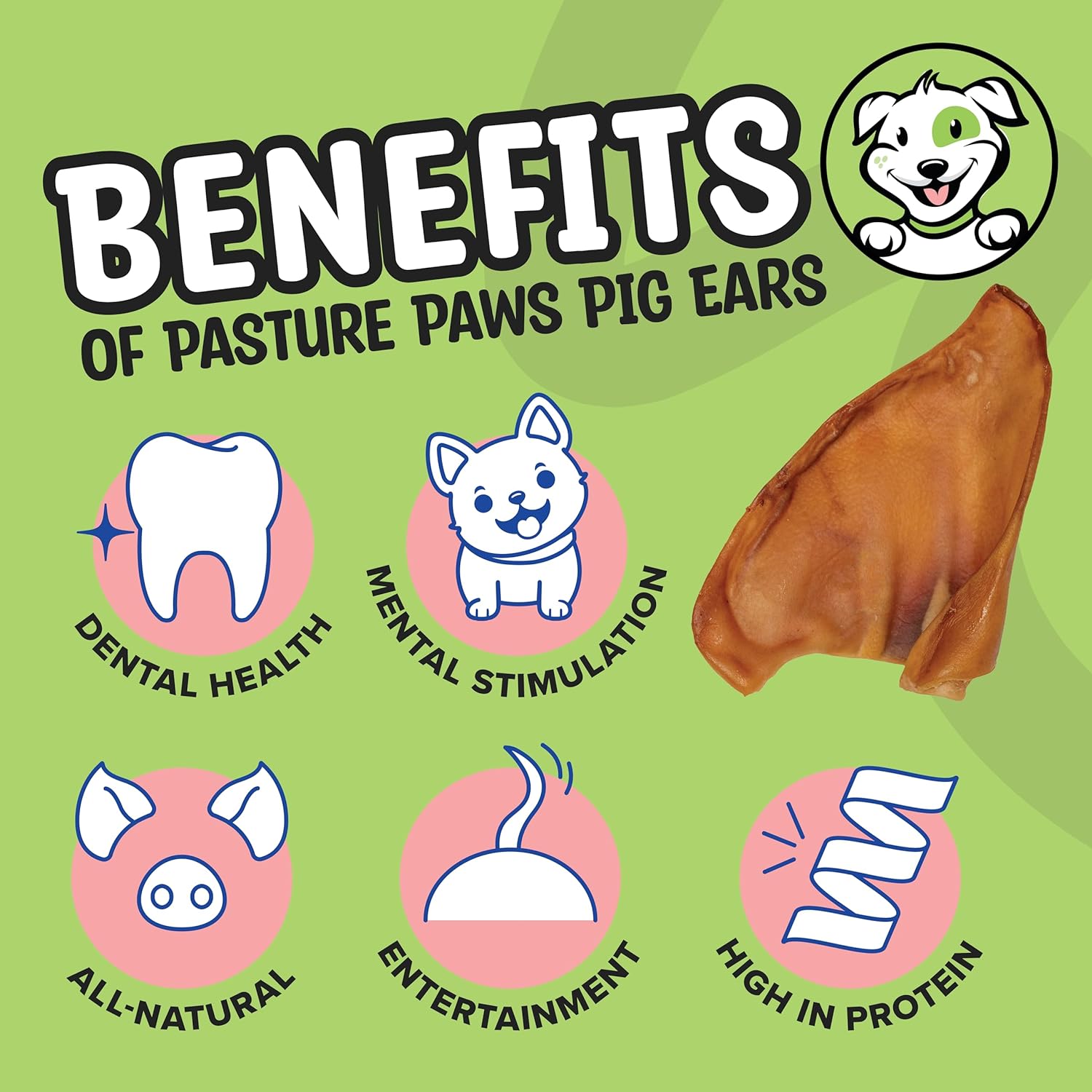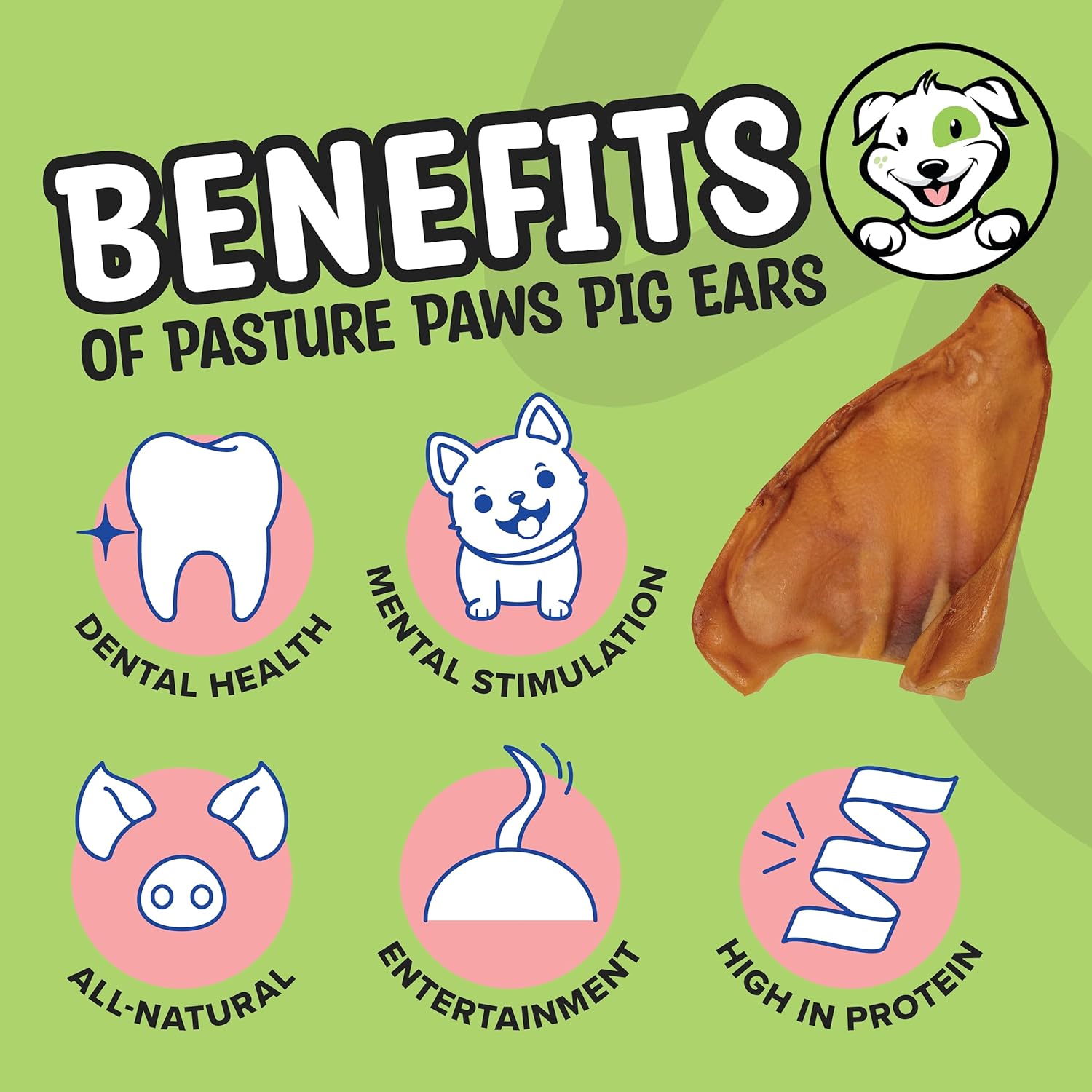If you're a dog owner, finding the right treats for your furry friend can be challenging, especially if your dog has a sensitive stomach. Dogs with sensitive stomachs need a special diet that is easy to digest and won’t upset their system. Fortunately, many dog treats on the market are designed specifically for these needs.

When searching for the best dog treats for sensitive stomachs, it's important to consider the ingredients. Look for treats made with high-quality, easily digestible proteins like chicken, turkey, or fish. Avoid treats that contain fillers such as corn, wheat, and soy, as these can be hard for dogs with sensitive stomachs to digest.
At Pasture Paws, we understand the importance of finding the right treats for your furry friend. That’s why we offer a wide selection of dog treats specifically designed for dogs with sensitive stomachs. Our treats are made with high-quality ingredients and free from fillers and artificial preservatives, ensuring your pet's health and happiness. Visit our website today to find the perfect treats for your furry friend! Get it now, pay later, and enjoy free shipping on orders over $49.
Understanding Dog Treats for Sensitive Stomachs

If you own a dog, you may have noticed that they are prone to digestive issues, especially if they have a sensitive stomach.
Canine digestive sensitivities can manifest in a variety of ways, including vomiting, diarrhea, gas, and lack of appetite. Stress, dietary changes, food allergies, or intolerances can sometimes cause these symptoms.
Common Symptoms
It's important to recognize the common symptoms of digestive sensitivities in dogs. If your dog is experiencing any of the following symptoms, they may have a sensitive stomach:
- Vomiting
- Diarrhea
- Gas
- Lack of appetite
If you notice these symptoms, taking your dog to the vet is important to determine the underlying cause.
Factors That Cause Sensitive Stomachs
Several factors can contribute to digestive sensitivities in dogs. The most common factors include stress, dietary changes, food allergies, and intolerances.
Stress can significantly impact a dog's digestive system, causing symptoms such as vomiting, diarrhea, and a lack of appetite. If your dog is experiencing anxiety, it's important to identify the source of the stress and take steps to alleviate it.
Dietary changes can also cause digestive issues in dogs, particularly if made too quickly. It's important to gradually transition your dog to a new diet to avoid upsetting its stomach.
Food allergies and intolerances can also cause digestive sensitivities in dogs. If your dog experiences symptoms such as vomiting, diarrhea, or gas after eating, it may have a food allergy or intolerance.
It is important to work with your vet to identify the specific food causing the issue and eliminate it from your dog's diet.
Choosing the Right Dog Treats

Knowing which ingredients are beneficial and which are not is important when choosing the right dog treats for digestive health.
Best Ingredients for Sensitive Stomachs
When selecting treats for your dog with a sensitive stomach, look for those that contain natural ingredients that are easily digestible. Some key ingredients to favor include pumpkin, sweet potato, and natural sources of fiber. These ingredients can help soothe the digestive system and promote healthy digestion.
In addition, look for treats that contain high-quality protein sources, such as chicken or other meats. These protein sources are essential for maintaining muscle mass and overall health, but they should be easily digestible to avoid digestive upset.
Ingredients to Avoid
Avoid artificial colors, flavors, and fillers when selecting treats for your dog with a sensitive stomach.
In addition, avoid treats that contain wheat, corn, or soy, as these ingredients can be difficult for dogs to digest and may cause allergic reactions.
Benefits of Limited Ingredients
Consider selecting treats that have a limited ingredient list. This can help reduce the risk of digestive upset and allergic reactions.
Limited-ingredient treats typically contain only a few high-quality ingredients, making them a great option for dogs with sensitive stomachs.
Best Dog Treats for Sensitive Stomachs

Finding the right treat can be challenging if your furry friend has a sensitive stomach. Luckily, there are many options available that can help keep your pup happy and healthy.
High-Quality Protein Treats
High-quality protein sources are necessary when choosing treats for dogs with sensitive stomachs.
Look for treats made with natural, human-grade ingredients like chicken, salmon, or duck. These protein sources are easy to digest and provide essential nutrients your dog needs to stay healthy. One great option to consider is bully sticks.
These natural chews are made from 100% grass-fed beef and are free from artificial additives, preservatives, and chemicals. They are high in protein and low in fat, making them a great treat option for dogs with sensitive stomachs.
Fiber-Rich Treats
Dietary fiber is essential to any dog's diet but can be particularly important for dogs with sensitive stomachs.
Fiber helps regulate digestion and can reduce the risk of digestive upset. Look for treats enriched with dietary fiber sources like pumpkin or sweet potatoes.
Grain-Free and Gluten-Free Treats
Some dogs find grains and gluten difficult to digest, so choosing grain-free and gluten-free treats is important.
Look for treats made with alternative ingredients like rice or potato flour. These treats are easy to digest and great for dogs with sensitive stomachs.
Probiotic and Prebiotic Treats
Probiotics and prebiotics can help to promote digestive health and reduce the risk of digestive upset.
Look for treats enriched with probiotics or prebiotics, or consider adding a supplement to your dog's diet. These treats can be a great option for dogs with sensitive stomachs.
Feeding Tips for Dogs with Sensitive Stomachs

When feeding and managing dogs with sensitive stomachs, you should follow a few key practices to ensure your pup stays healthy and happy.
Proper Treat Portioning
One of the most important things you can do to manage your dog's sensitive stomach is to be mindful of their treat intake.
While treats can be a great way to reward and bond with your pup, overfeeding them can lead to digestive upset and other health issues. To ensure you're properly portioning your dog's treats, consult your vet to determine the appropriate amount for their specific dietary needs.
Additionally, consider using low-calorie treats or breaking larger treats into smaller pieces to help manage their calorie intake.
Introducing New Treats Slowly
If you're introducing a new treat into your dog's diet, do so cautiously.
Dogs with sensitive stomachs may have specific dietary needs or food sensitivities that new ingredients can trigger. To help prevent digestive upset, introduce new treats gradually and in small amounts.
Monitor your dog's reaction to the new treat, and if they experience any adverse effects, discontinue use immediately.
Consult Your Vet
If you need help managing your dog's sensitive stomach or have specific dietary needs you need to address, it's always best to consult with your vet.
They can provide you with specific recommendations for your pup's diet and help you navigate any dietary changes or allergies they may have.
Conclusion
Finding the right dog treats for sensitive stomachs can be challenging, but with careful consideration and research, you can discover treats your dog will love that won't upset their digestive system. Focus on treats high in protein and fiber, and avoid those with artificial preservatives, colors, and flavors.
Look for treats made with high-quality ingredients and formulated to be gentle on your dog's digestive system.
Ready to give your dog the best treats for their sensitive stomach? Visit Pasture Paws to explore our premium collection of dog treats. Our products are carefully selected to benefit your dog's health and well-being. Shop now and make a positive difference in your dog's diet!
Frequently Asked Questions
Is fresh food better for dogs with sensitive stomachs?
Fresh food can be better for dogs with sensitive stomachs as it often contains fewer preservatives and fillers. Fresh, high-quality ingredients can be easier to digest and help reduce gastrointestinal issues. Always consult with your vet to ensure a balanced diet.
How do I know if my dog needs sensitive stomach food?
Signs your dog may need sensitive stomach food include frequent vomiting, diarrhea, excessive gas, and a lackluster coat. If you notice these symptoms, consult your vet to rule out others.
Is wet food better for dogs with sensitive stomachs?
Wet food can be better for dogs with sensitive stomachs as it is often easier to digest and provides extra hydration. Look for high-quality wet food with limited ingredients and no artificial additives. Always transition slowly to avoid further stomach upset.
Are probiotics good for dogs with sensitive stomachs?
Probiotics can benefit dogs with sensitive stomachs as they help balance the gut flora, improving digestion and reducing gastrointestinal issues. Consult with your vet to choose a suitable probiotic supplement for your dog.
